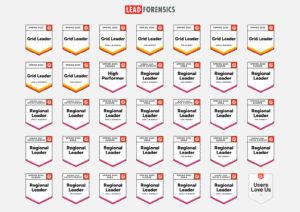The upcoming 28th session of the Conference of the Parties (COP28) is set to be a pivotal moment in the global climate conversation. As world leaders, activists, and policymakers converge to discuss the pressing issue of climate change, the ripple effects are expected to touch every corner of the global economy, including the business-to-business (B2B) sector.
COP28: Predictions and Expected Outcomes
COP28 is anticipated to be a watershed moment with nations ramping up their commitments to the Paris Agreement. We expect to see a heightened focus on actionable targets, with specific plans for reducing carbon emissions across various industries. Predictions for policy changes are robust, suggesting stricter emissions protocols and increased scrutiny of corporate carbon footprints.
Innovation and technology are likely to be at the forefront of COP28 discussions, driving the narrative towards sustainable solutions that can be scaled globally. The summit may well set the stage for breakthrough international agreements that could redefine the parameters of sustainable business practices.
The Impact on B2B Companies: An Overview
The implications for B2B companies post-COP28 will be significant. Environmental policies emanating from the summit will have a direct impact on B2B operations. Companies may face increased pressure to demonstrate sustainability in their operations and offerings, as well as to disclose their environmental impact transparently.
The demand for sustainable products and practices is poised to surge, compelling B2B companies to innovate or risk obsolescence. Moreover, green financing could see a rise, altering the financial landscape for B2B transactions and investments.
Sector-Specific Changes and Challenges
Different sectors will face unique challenges following COP28:
- Manufacturing: Green production and supply chain processes will become increasingly critical.
- Energy and Utilities: A significant push towards renewable energy sources is expected, potentially disrupting traditional energy markets.
- Technology and IT: These sectors will be instrumental in developing solutions that enable sustainable operations across the board.
- Agriculture and Food Production: Sustainable farming practices will no longer be optional, as the industry adapts to new environmental standards.
- Construction and Building Materials: Increased demand for green construction practices and compliance with sustainable building regulations.
- Transportation and Logistics: Shift to eco-friendly logistics and efforts to decarbonize supply chains.
- Chemicals: Pressure to produce more environmentally friendly chemicals and implement circular economy practices.
- Financial Services: Faster growth of green financing and integration of environmental risks in risk management.
Opportunities for B2B Companies
With challenges come opportunities. B2B companies can look forward to:
- New Markets: Sustainable products and services will open new markets.
- Innovation: There will be a surge in collaboration opportunities to drive innovation in sustainability.
- Consultancy Services: An increased demand for consultancy and advisory services in environmental compliance is expected.
- Government Contracts: Public sector contracts will likely prioritize companies with green credentials.
Preparing for the Shift: Strategies for B2B Companies
Policy Impact Assessment
In-depth Analysis: Companies need to conduct thorough analyses of how new environmental policies will impact their operations. This involves understanding not just the immediate legal implications but also potential indirect effects, such as changes in supply chain dynamics or customer expectations.
Scenario Planning: Businesses should engage in scenario planning to anticipate various policy outcomes. This practice helps in strategizing for different potential futures, such as stricter carbon emission standards or incentives for sustainable practices.
Compliance Strategy: Developing a compliance strategy is crucial. This includes identifying necessary changes to meet new regulations, estimating costs, and planning for implementation.
Sustainability Integration
Corporate Vision and Culture: Embedding sustainability into the core business model starts with aligning it with the company’s vision and culture. This means making sustainability a key part of the company’s identity and decision-making process.
Product and Service Innovation: Redesigning products and services to be more sustainable is vital. This could involve using eco-friendly materials, adopting circular economy principles, or providing services that help other businesses reduce their environmental impact.
Operational Changes: Reviewing and modifying internal operations to reduce environmental footprints is essential. This includes energy-efficient practices, waste reduction, and sustainable resource management.
R&D Investment
Sustainable Solutions Development: Investing in R&D is critical for developing new sustainable solutions. This can range from creating more efficient manufacturing processes to developing environmentally friendly technologies.
Collaborative Research: Engaging in collaborative research with universities, industry partners, and even competitors can amplify the impact and reach of sustainability-focused R&D.
Innovation Incentives: Establishing internal incentives for innovation in sustainability can encourage employees to contribute to the company’s green initiatives.
Stakeholder Engagement
Transparent Communication: Regularly and transparently communicating with stakeholders about the company’s sustainability efforts is key. This involves sharing both successes and challenges in meeting environmental goals.
Collaboration with Policymakers: Depending on the scale of your company,building relationships with policymakers can provide insights into forthcoming regulations and opportunities to influence policy development in a way that is beneficial for both the environment and businesses.
Customer and Supplier Partnerships: Working closely with customers and suppliers to develop and promote sustainable practices can create a more comprehensive environmental impact. This may involve setting joint sustainability goals or collaborating on green projects.
By focusing on these strategies, B2B companies can not only prepare for the changes expected from COP28 but also position themselves as leaders in the transition towards a more sustainable global economy. Adopting these approaches will not only help in compliance but can also drive innovation, open new markets, and enhance brand reputation in an increasingly environmentally-conscious business landscape.
Impact of COP28 on B2B Sales and Marketing
The Emphasis on Sustainability in Brand Messaging
Green Branding: Post-COP28, sustainability will continue to be a crucial element of brand messaging. B2B companies will need to highlight their environmental efforts and achievements in their marketing materials to appeal to increasingly eco-conscious clients.
Authentic Communication: Transparency and authenticity in communicating sustainability initiatives will be key. Greenwashing, or making misleading claims about environmental practices, can damage reputation and trust.
Changing Customer Preferences
Eco-conscious Customers: There will be a growing segment of customers who prioritize sustainability in their purchasing decisions. B2B sales strategies will need to adapt to meet these changing preferences.
Solution-Oriented Sales: Sales teams will need to focus on providing solutions that not only meet the business needs but also align with the sustainability goals of their clients.
Digital Marketing Shifts
Online Engagement: Digital marketing will play a crucial role in reaching out to a global audience concerned with environmental issues. Utilizing social media, content marketing, and SEO around sustainability topics can be effective.
Virtual Sales Processes: The emphasis on reducing carbon footprints could lead to more virtual meetings and digital sales processes, reducing the need for travel.
Sustainable Event Marketing
Eco-Friendly Events: For B2B companies that rely on events for networking and sales, there’s likely to be a shift towards more sustainable event practices. This includes minimizing waste, having a preference for more eco-friendly venues, and potentially hosting virtual events.
Leveraging Data and Technology
Data-Driven Insights: Utilizing data to understand and predict the sustainability-related needs and behaviors of potential clients can enhance sales and marketing strategies.
Technology in Sales: Innovative technologies, such as AI and CRM systems, can be used to streamline sales processes and reduce environmental impact, aligning with the broader sustainability goals.
Building Partnerships and Collaborations
Collaborative Marketing: Forming partnerships with other businesses and organizations committed to sustainability can amplify marketing efforts and create new opportunities.
Community Engagement: Engaging with local and global communities on sustainability issues can build brand loyalty and trust among potential B2B clients.
Incorporating these aspects into B2B sales and marketing strategies post-COP28 will not only help companies stay relevant in an evolving business environment but also demonstrate their commitment to a more sustainable future, which can be a significant competitive advantage.
Conclusion
As COP28 looms on the horizon, it’s imperative for B2B companies to stay ahead of the curve. The outcomes of this global summit are likely to dictate the business landscape for the foreseeable future. Therefore, proactive adaptation and strategic planning are crucial. Let COP28 be the catalyst for your company’s sustainable transformation.
Further Reading and Resources
As we approach COP28, staying informed is key. We recommend keeping an eye on official COP28 channels, sustainability frameworks, and industry-specific reports on emerging trends. This knowledge will empower B2B companies to make informed decisions and thrive in a post-COP28 world.
COP28 has the potential to be a defining moment for our planet and for the B2B sector. By understanding the likely outcomes and preparing for the changes ahead, businesses can turn challenges into opportunities for growth and leadership in the new green economy.










